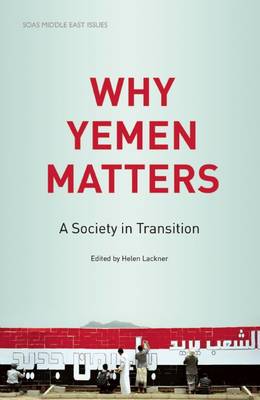
Why Yemen Matters
Helen Lackner
£21.99
Description
In November 2011, an agreement brokered by the GCC brought an end to Yemen’s tumultuous uprising. The National Dialogue Conference has opened a window of opportunity for change, bringing Yemen’s main political forces together with groups that were politically marginalized. Yet, the risk of collapse is serious, and if Yemen is to remain a viable state, it must address numerous political, social and economic challenges. In this invaluable volume, experts with extensive Yemen experience provide innovative analysis of the country’s major crises: centralized governance, the role of the military, ethnic conflict, separatism, Islamism, foreign intervention, water scarcity and economic development. Published in association with the London Middle East Institute at SOAS, and the British Yemeni Society.
Publisher Review
'Essential reading - The authors shed light on the context of the Yemeni uprising in a way that not only helps us understand the current transitional period but also the outlines of Yemen's future.' - Charles Schmitz, President of the American Institute of Yemeni Studies 'An up to date and wide-ranging guide to what is arguably the Arab world's least known and most misunderstood state. Edited by one of Britain's foremost authorities on Yemen - brings together an impressive range of experts on the country to examine the contemporary reality of Yemen.' - Michael Willis, Director of the Middle East Centre, St. Antony's College, Oxford University 'Thoughtful and well-researched, Why Yemen Matters unearths a wealth of information about contemporary Yemeni society.' - Baghat Korany, Professor of International Relations, American University in Cairo 'An excellent survey of the country's struggles - the book's cover is striking in an understated way, echoing the tenor of the contents.' Majalla 'A remarkable book in terms of its comprehensiveness, accessibility and ethical approach - This book is a must-read for those wanting to go beyond the headlines proclaiming Yemen a "failed state", in order to learn about people's daily realities, needs and aspirations. It dispels misconceptions about the causes of Yemen's problems, such as exaggerating the role of qat, tribalism, Islam or Al Qaeda, to reveal Yemenis as wrestling with problems often beyond their control, but who persist in struggling for a better future.' Jordan Times
Book experts at your service
What are you looking for?